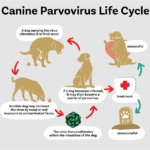Immediate Steps to Take
Follow these prioritized actions. If in doubt, contact a veterinarian now.
- For bleeding: firm pressure with a clean cloth. Avoid tourniquets unless trained.
- If broken bones are suspected: immobilize gently and minimize movement.
- Use blankets to prevent hypothermia for small/thin-coated animals.
- Keep transport quiet and secure; avoid loud noises.




















